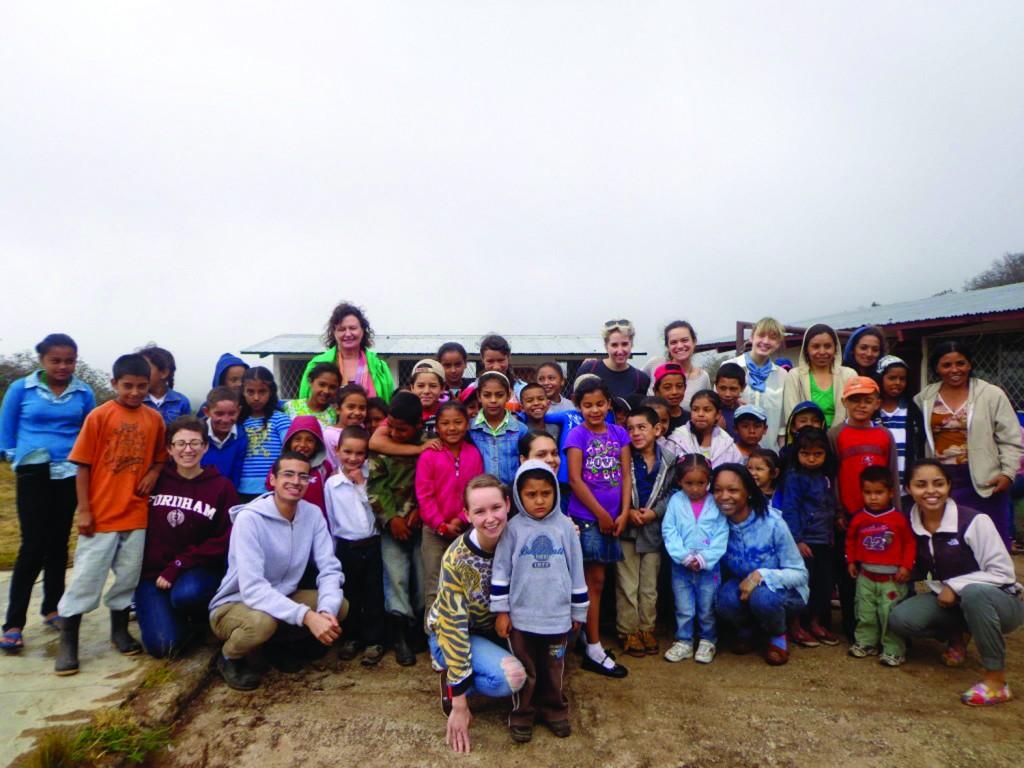Where Did You GO! this Spring Break?
March 27, 2013
“How was your break?” It’s the first question we ask our friends, our teachers and our acquaintances when we greet them after a long absence. However, this proved to be a tough question to answer for students who participated in the Global Outreach (GO!) program.

Jaime Rodriguez, FCLC ’14, said, “Since being back, [when] people ask me the first thing I would say is frustrating—incredibly frustrating.”
Ashlee Aguiar, FCLC ’13, said, “It was really stressful, but it was really rewarding.”
These definitely aren’t the answers you’d expect from college students who have just come back from spring break—so what provoked such agitated responses?
Each GO! project works with various organizations in accordance to the focus of their trip. This year, the GO! Nicaragua project’s focus was women’s rights; the team visited both a health clinic and a women’s coffee cooperative, in order to learn about the injustices that women face. Rodriguez said, “[In Nicaragua,] there’s a concept called machista, where everything revolves around the man. That machista culture is embedded in you from birth. It goes into every fabric of Nicaraguan society. Many women are in domestic abusive marriages.”
The GO! Dominican Republic team worked with the Joan Rose Foundation which works to educate children, to learn about race-relations. Aguiar, who led the trip this year, said, “[In the Dominican Republic,] Dominicans of Haitian descent or African descent are very discriminated against. The foundation we worked with gives education, food and healthcare to Haitian children who can’t receive those services in the Dominican Republic and to Dominican Republican kids who are too poor to receive those services in their own country.”
The GO! New Orleans project focused on achieving solidarity with the community, working with various organizations in the areas affected by Hurricane Katrina, namely, the Ninth Ward. The team worked at a pet shelter, and cleared out overgrown lots neglected by the government. Dylan Katz, FCLC ’15, said, “A woman said the last thing she saw when she evacuated was a barge that had drifted over to the levee and crushed it. People think that Katrina happened because it was a bad hurricane, which is true, but Katrina really happened because of the levee failures.”
The GO! Waynesburg team worked with Habitat for Humanity to face the issue of affordable housing in the area (also known as Greene County). Grace Mineo-Marinello, FCLC ’15, said, “It’s one of the poorest counties in Pennsylvania. They’ve had a lot of economic problems because of the coal industry; most people there have worked in the coal industry and lost their jobs. There’s [also] a big housing problem.“
The projects weren’t just about the heavy labor; they were incredibly emotionally demanding as well. Aguiar said, “Something I’m still having trouble processing was the relationship that I formed with a little boy. We learned that his parents had abandoned him and his brothers two weeks prior. When I left, I felt like I was abandoning him as well, [and] I felt that kind of guilt. That’s something I’m still struggling with.”
Rodriguez said, “I had conversations with our homestay parents that were groundbreaking. The husband of the woman asked us, ‘Do you ever think that there will be a revolution without violence?’ I didn’t even know where to start. I have so many more questions [now]. I’m coming back with so much more solidarity, not only with the Nicaraguan people, but with the people here.”
Mineo-Marinello said, “I didn’t think of myself as a spiritual person, but having to be in the community where I had to share everything with these people made me think a lot about who I am, and all those deep questions.”
As far as life priorities go, embracing the uncomfortable seems to have been the tipping point—the “growing edge”—whatever you want to call it, for these students. Katz said, “It’s important because with that discomfort is when you start assessing things at a deeper level. It’s important to share all the stories you’ve heard. You need to look deep into your communities—especially with Hurricane Sandy, it’s crucial to go back to the areas and help out. ”
“Confronting privilege is something you don’t want to do, but I’m happy I had to embrace the uncomfortable. The knowledge and insight I have is irreplaceable,” Rodriguez said.
Aguiar agreed. She said, “The questions I had going there are no longer the ones I have anymore.You can’t save the world. You have to find a cause, one that speaks to you, and fight for it.”










